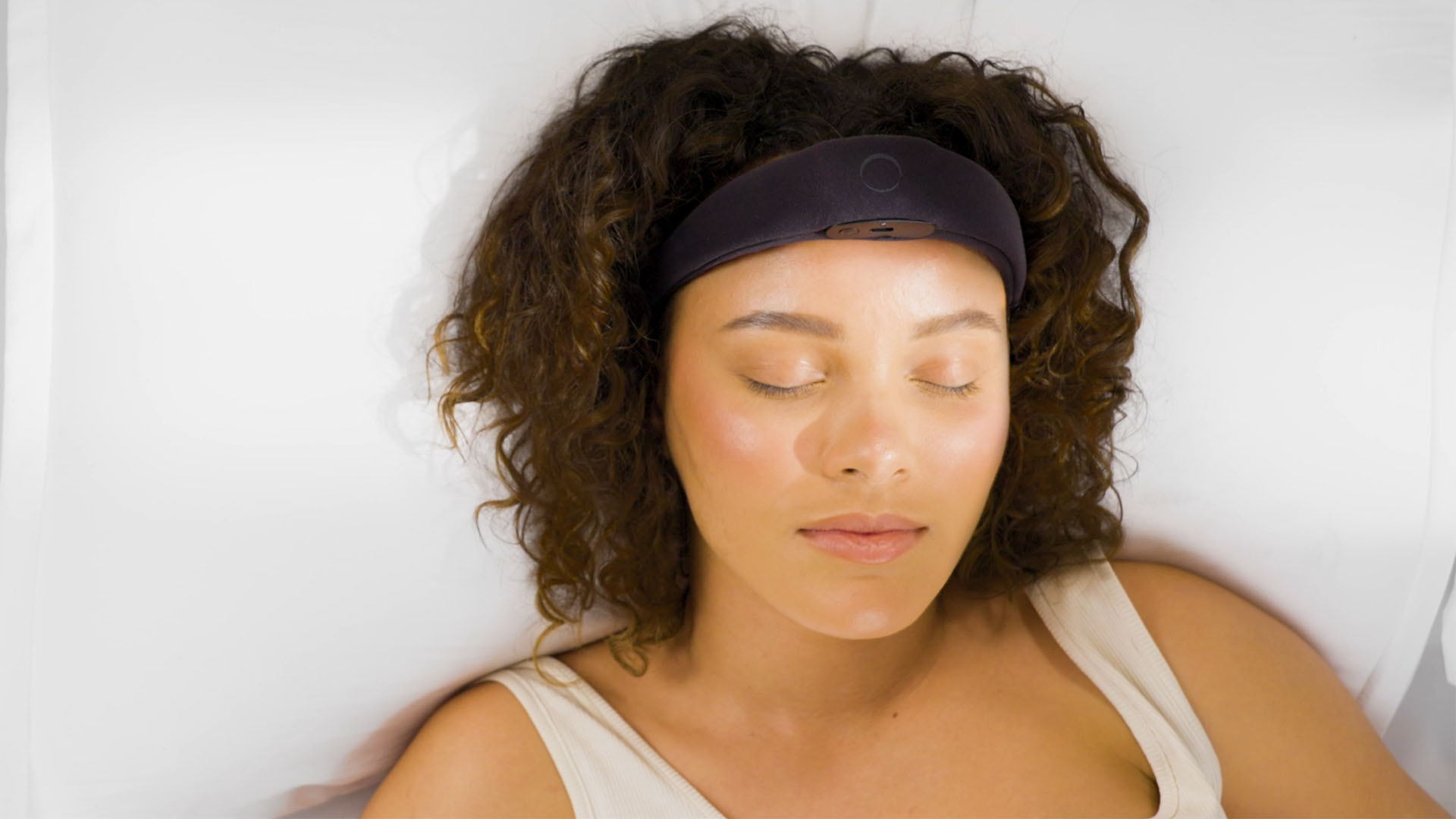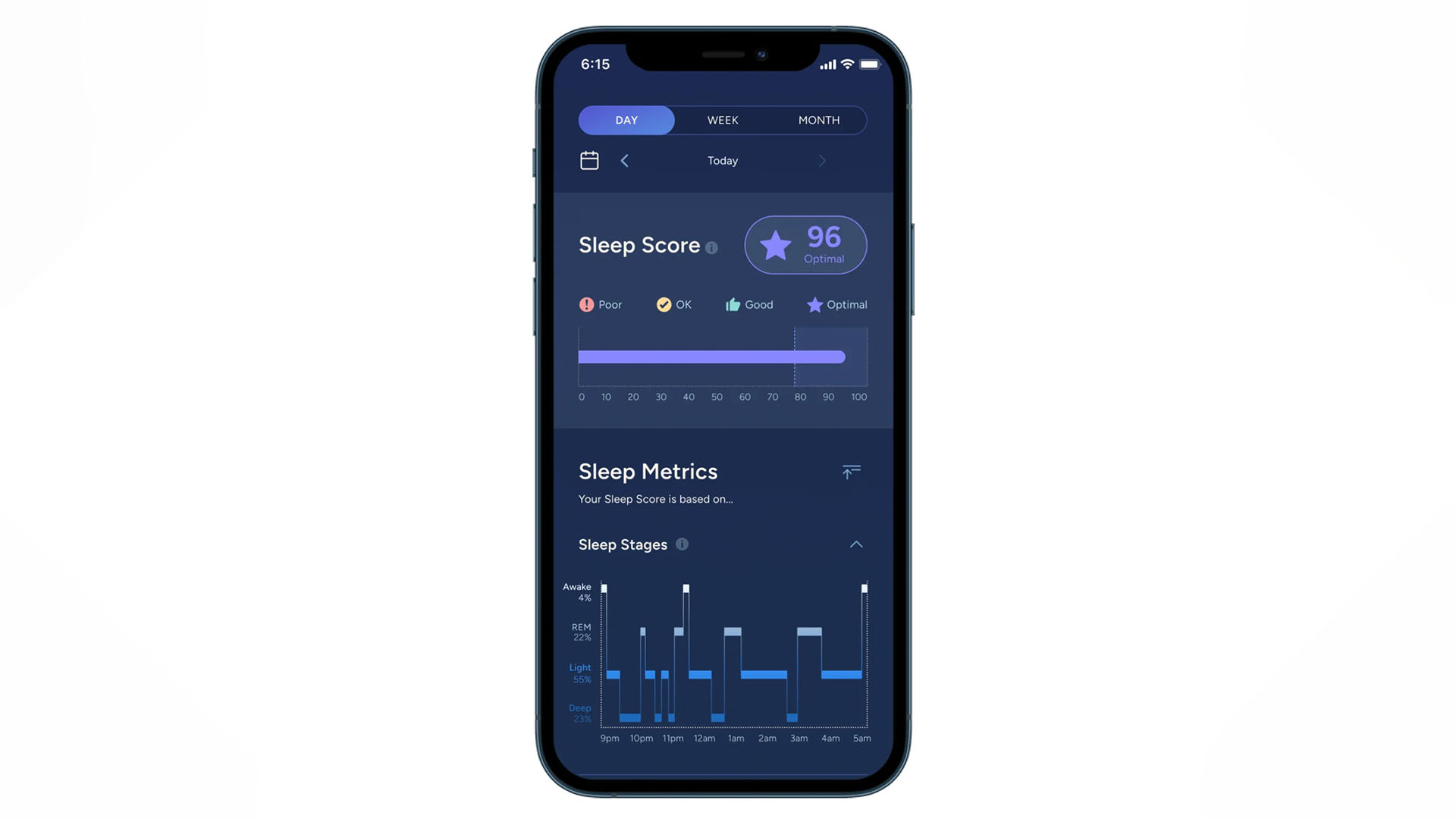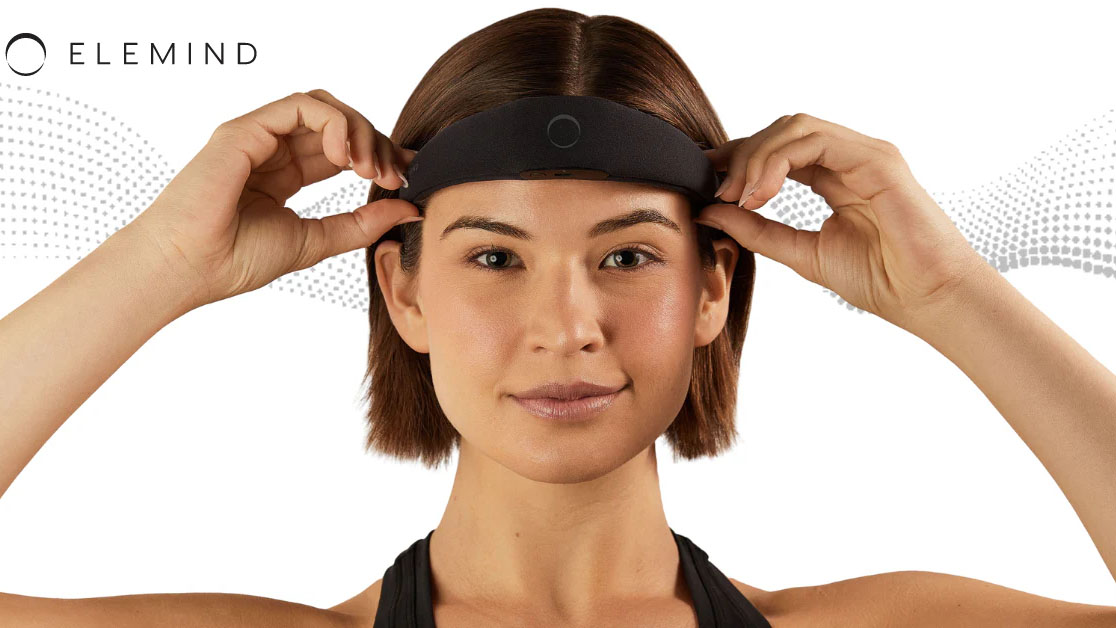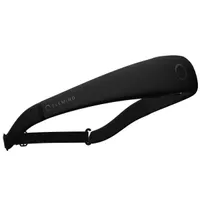This brainwave-reading headband promises sleep on demand — futuristic dream or a sci-fi nightmare?
The Elemind neurotech headband promises to help you fall asleep faster, so how does it work?

Ever dreamt you could just press a button and take control of your sleep? Now you might be able to, with the release of the Elemind neurotech headband ($349 at Elemind). Straight from your favorite sci-fi, the Elemind headband is a brainwave-reading, sound-pulsing, pharmaceutical-free sleep aid that promises to help you drift off faster.
Sounds... confusing, right? Elemind states the headband uses "signal processing algorithms and AI" to, essentially, read your brainwaves. The in-built sensors recognize brain signals associated with wakefulness and respond with acoustic stimulation capable of modulating high-frequency waves into something more soothing. Think of it like noise canceling headphones, but for your brain.
Price: $349 (plus app subscription)
What's included: Headband, three adjustment straps, USB-C charging cable
Available from: Ships late summer
At least, I think that's a semi-accurate simile, but I'm a little out of my depth. As a sleep writer I'm used to suggesting journalling and yoga over mind reading headbands. But the science behind the Elemind takes an approach surprisingly similar to your nighttime routine, calming busy thoughts to shift those 'awake' brainwaves into slower, sleepier brainwaves.
It might all sound eerily sci-fi, but Elemind has spent five years developing the technology and clinical testing has had some impressive results. Some sleepers found wearing the Elemind could even help them drift off up to 74% faster.
The Elemind is a pricey bit of sleep tech, with the headband costing $349 (although that's a cheaper sleep aid than this year's best mattresses). It's currently available for pre-order, with the release happening sometime this summer – not, as you might expect, 1,000 years in the future.
Elemind neurotech headband: $349 at Elemind
The Elemind uses a combination of EEG brain sensor readings and acoustic stimulation to help you consistently fall asleep faster, and while it might sound like it's from the year 3024, rigorous testing shows it can work right now. Currently available for pre-order (with headbands shipping this summer) the Elemind costs $349 and if you buy now, you get a year's app subscription for free.
Elemind neurotech headband: price
The Elemind neurotech headband is currently priced at $349. That's expensive, but can you really put a price on having a headband read your mind and send you to sleep? Yes, possibly, but the Elemind is priced similarly to other smart sleep devices, including the Somnee Smart Sleep Headband, $299 at Somnee, and some of the best fitness trackers.
As well as the initial price of the headband, there's also an app subscription. This app offers some control over the Elemind, but it's primarily a place to compile and access sleep data. The collected metrics will allow you to track the effectiveness of the Elemind, plus learn more about your sleep.
Get instant access to breaking news, the hottest reviews, great deals and helpful tips.
An annual subscription is $6.99 per month, while a monthly subscription costs $12.99 per month. If you order now, one year's subscription is included for free, as a perk of being a beta tester.

Elemind neurotech headband: design
Before you strap this thing to your head and let it start monitoring your brain, you probably want to know what's happening beneath the hood of the Elemind. From the outside, it looks almost like any other headband. Good news, seeing as you have to wear the Elemind to bed.
The Elemind headband has a series of EEG (electroencephalogram) sensors across the forehead and behind the ear. These sensors are small, soft, and non-disruptive, with a channel-hopping feature that ensures if one sensor stops reading, another will pick up the slack.
To get it started, double tap the action button on the base of the Elemind. At this point the sensors will start reading your brain signals, monitoring for the perfect moment to release the sonic pulses that will send you to sleep. Once you've drifted off the pulses gently fade, so you can get up naturally in the morning.
Over time, the AI personalization will learn your sleep patterns and begin to respond more efficiently, boosting the overall effectiveness of the technology.

Made from a plush and flexible fabric, the Elemind is designed to be comfortable in any sleep position – including stomach sleeping. Those EEG sensors have a rubber-y feel that helps anchor the band in place, while three sets of flexible straps ensure it fits comfortably to your forehead.
The unobtrusive headband also allows for on-the-go use. It won't look strange to put on the Elemind before a red eye flight (although your fellow passengers might give you the side eye when you drift off while they're still figuring out the seat belt).
There is one major downside to this futuristic tech, which is that as it uses acoustic stimulation, it's currently not suitable for the hearing impaired. This is disappointing, and hopefully something Elemind is working on.
So is mind-reading tech the next sleep trend? Quite possibly. Sleep tech solutions are helping people develop new ways to drift off, with the best smart beds and mattresses offering everything from changeable temperatures to integrated sleep tracking. The Elemind's brainwave-reading might sound a bit like a sci-fi nightmare, but if you're falling asleep on demand, you'll be too busy dreaming to think about it.

Ruth is an experienced Senior Staff writer at Tom’s Guide, covering all things sleep and mattresses. She writes to help people sleep better, from how-tos to the latest deals to mattress reviews, and has interviewed an array of experts who share her passion. She is also our specialist on memory foam — she’s flown around the world to see memory foam being made — and leads our hotel mattress content. She has a deep interest in the link between sleep and health, and has tried enough mattresses, from Helix to Nectar to Simba, to know the right bed really can make a difference to your wellbeing. Before joining the team at Tom’s Guide, Ruth worked as a sleep and mattress writer for our sister website, TechRadar.
 Club Benefits
Club Benefits






